Beyond Sobriety: Integrated Holistic Healthcare in the Treatment of Substance Use and Co-Occurring Disorders
July 30, 2020
Recent Posts

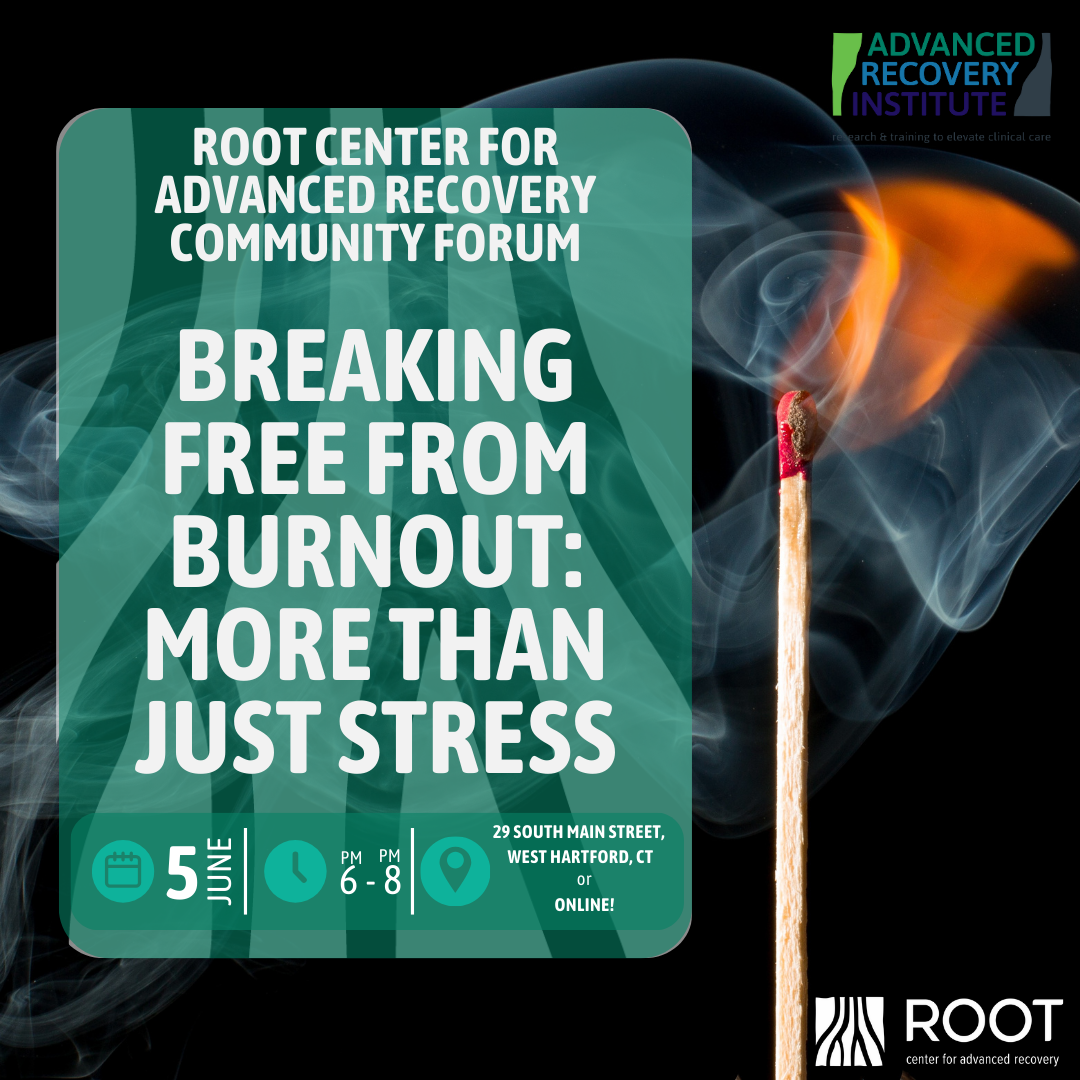
335 Broad Street
Manchester, CT 06040
Phone: 800-862-2181
July 30, 2020
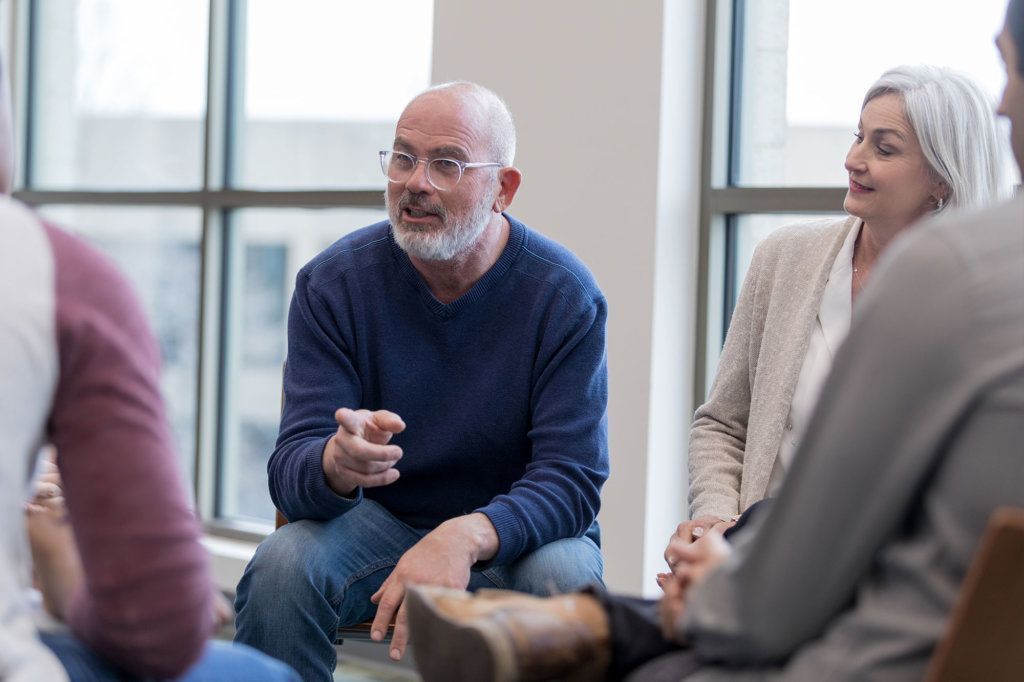
The issue of addiction in America has taken a prominent seat in our public consciousness over the past decade, with an opioid crisis racking the country and communities across the nation scrambling to respond. Funding for treatment programming, provider collaboration, and public awareness has been funneled toward the problem, but with steady mortality rates and ongoing devastation, we are moved to ask ourselves if something more can be done.
Behavioral health organizations in the non-profit sector have taken the brunt of the demand, serving the most under-resourced and highly vulnerable populations in American society. Front line treatment modalities include brief inpatient detoxification programs, medication-assisted treatments, intensive outpatient programming, and ongoing individual counseling aimed at eradicating substance use patterns and mitigating relapse risks. But with relapse rates hovering over 60% (NDIA, 2020), it is clear that abstinence alone does not equate to lasting and meaningful change.
Addiction as a Progressive Brain Disease
The definition and theoretical conceptualization of problematic substance use has evolved throughout human history, with the first documented incidents of addiction dating back to antiquity (Crocq, 2007). Systematic attempts to disrupt substance use patterns have proven largely punitive, with historical treatments placing a strong emphasis on punishment, shaming, aversive conditioning, and criminalization (White, 2014). Through modern science we’ve come to understand and appreciate the role of genetics, mental health, learning, and trauma in the development of substance use and co-occurring disorders (NDIA, 2020); and addiction is now best understood as a progressive brain disease that originates from a complex interaction between genetics, environment, and mental health (Volkow et al, 2016).
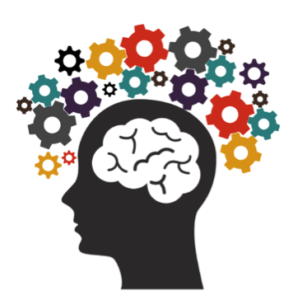
Fig. 1.1
Addictions develop and gradually compound over a period of time, causing significant neurological changes as they progress (Humphreys et al, 2018 ) . Extended periods of substance use are associated with alterations in the processing of pleasure, stress, memory, emotions, and reasoning (ASAM, 2016). Addicted individuals are often left with neurological systems that are hypersensitive to craving and under-responsive to the executive functioning system that dampens impulsive and destructive patterns (Ellis et al, 2016). It can take years for a brain to reconstruct normal pathways and regain typical functioning after addiction has taken hold (Casey & Kai, 2017), and any baseline difficulties that plagued the person prior to developing an addiction (i.e. depression, trauma, medical issues) will often reemerge in an exacerbated form after a person achieves sobriety (Barry, Keenan & Smyth, 2010).
So why isn’t sobriety enough?
When an individual is in the throes of a substance use disorder, drug use and associated drug-seeking behaviors serve as the most prominent and disruptive symptom in the person’s life. During periods of acute use, people often demonstrate a drastic change in the way they look, act, and relate to the world; these externalized deviations can make it seem like the addiction is the singular culprit for the client’s unbalance and distress. But addiction is a highly contextual disease that does not exist in a vacuum.
Addiction is driven by a complex amalgamation of forces and is almost always predicated on an intricate interaction between psychological, psychosocial, and physiological factors (Taite, 2012). Interrupting substance use patterns is a good first step in helping an individual attain sobriety, mitigate risks, and reestablish a sense of control, but without addressing underlying issues and touching upon all relevant forces in a person’s life, the individual is unlikely to be able to sustain sobriety and positive change.
Treatment programs that interrupt substance use but fail to address underlying issues can create temporary behavioral suppression and inadvertently condemn clients to repeatedly cycle through periods of relapse and brief sobriety without the achievement of lasting and meaningful change. When problematic drug and alcohol patterns are removed, the client is still left to grapple with the issues that led them into addiction in the first place, compounded by complications created during the period of addictive preoccupation. Behavioral suppression, at worst, leads to internalization of shame and subsequent relapse, and at best, leads to addiction transfer or the exacerbation of mental health symptoms.
True recovery can only be achieved by taking a holistic, multifaceted lens and addressing issues in a range of areas in a client’s life. Treatment programs must work to address issues related to nutrition, family relationships, social supports, living environment, occupation, economics, physical health, spiritual connection, and intellectual development. This multifaceted lens allows clients to recognize and resolve issues in a multitude of spheres and promotes fundamental change and sustained recovery.
Holistic Medicine: The New Frontier
Holistic medicine is an approach to client care that takes the whole person into account and integrates treatments that address the mind, body, and spirit (Adedoyin & Burns, 2014). It works through multiple spheres of life functioning to promote overall wellness and balance (Myers, et al, 2004), and in doing so allows clients to improve the global quality of their lives and foster sustainable and significant change.
Wheel of Wellness Model
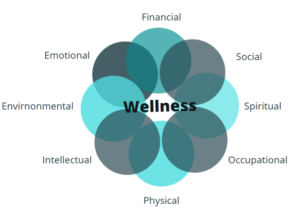
Fig. 1.2
Integrative care encourages practitioners to approach client issues in a multifaceted way and shifts the paradigm from a narrow focus on a singular behavior to a broadened lens that addresses all disruptive forces in a person’s life. Holistic care helps clients to move forward in a meaningful way and opens up pathways on a multitude of levels to cultivate substantial and sustainable change. Practitioners who embrace holistic care understand that wellness is not just about stopping things that cause illness; it is about instilling practices that cultivate wellbeing, balance, and growth.
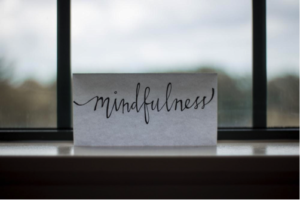
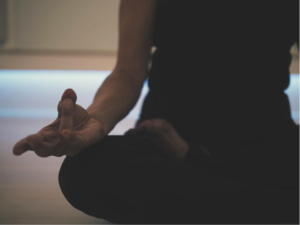
Fig 1.3
Interventions in a holistic model should work to address various domains of the wheel of wellness (Figure 1.2). Various intervention tools that can be used to address client needs are outlined in Figure 1.4. Individualized treatment plans should be crafted to support growth in different spheres of life functioning, creating a multidimensional framework that comprehensively responds to client needs.
Integrative Treatment Tools
| Meditation | Yoga | Massage Therapy |
| Art Therapy | Nutrition Classes | Couples Counseling |
| Walking Groups | Gardening | Dance |
| Animal Therapy | Mother-Infant Relation Groups | Poetry and reading classes |
| ESL/Literacy Classes | Music Therapy | Exercise/Gym Access |
| Trauma Work | Biofeedback | Aroma Therapy |
| Gender Responsive Groups | Family Therapy | Spirituality Groups |
| Mindfulness | Budgeting Seminars | Cooking Classes |
| Parenting Classes | Self-Care Coaching | Legal Literacy |
| Employment Coaching | HIV/AIDS/Hepatitis C Testing | Support Group Coordination |
| Adventure Therapy | Housing Support | Transportation Coordination |
| Nature groups | Acupuncture | Enrichment trips |
Fig. 1.4
Integrative treatment structures should be crafted to place a heavy focus on emotional, social, and spiritual areas of life, as these are primary indicators of successful recovery from mental health and addiction disorders (Onken et al, 2007). This multidimensional approach allows clients to thrive and succeed in multiple areas, increasing normative success and building a foundation of self-awareness, confidence, positive self-esteem, and growth. Holistic interventions as they relate to the Wheel of Wellness are mapped out in Figure 1.5.
Interventions in Association with Spheres of Life Functioning
| Sphere on Wheel of Wellness | Associated Holistic Interventions |
| Emotional | Psychotherapy, Medication Management, Trauma Work, Couples Counseling, Parenting, Women’s Groups, Recovery Groups, Animal Therapy, Biofeedback, Family Therapy, Cognitive Behavioral Therapy, Self-Care Coaching |
| Financial | Budgeting Seminars, Financial Literacy, Food Budgeting Support, Resource Management, Retirement Planning, Personal Values Map, Gambling Addiction Treatment and Support |
| Social | Gardening, Mother-Infant Relation Groups, Therapeutic Humor Groups, Social Skills Training, Conflict and Anger Management, Support/Activity Groups |
| Spiritual | Meditation, Yoga, Nature Groups, Aromatherapy, Spirituality Groups, Mindfulness |
| Occupational | Resume Development, Interview Coaching, Vocational Counseling, Resource Coordination, |
| Physical | Yoga, Massage Therapy, Walking Groups, Physical Therapy, Acupuncture, Medical Coordination and Testing, Nutrition, Dance, Exercise/Gym Access |
| Intellectual | Art Therapy, Poetry, and Literary Groups, ESL and Adult Literacy Classes, Enrichment Trips, Legal Literacy |
| Environmental | Housing Support, Cooking Classes, Gardening, Transportation Assistance, Advocacy, Environmental Cuing/ Trauma-Informed Spaces Education |
Fig. 1.5
The Challenges of Integration
Root Center for Advanced Recovery recognizes that the non-profit behavioral healthcare sector is in the midst of an array of grave challenges, which have been further exacerbated by the COVID-19 pandemic and amplified financial complications. In a time where we are all striving to do more with less, integrating new modalities into our care frameworks can seem like an insurmountable feat. But change is necessary, and there is something that can be done in any setting to improve client care and support the whole person in their recovery journey.
We invite our colleagues to engage with us in revolutionary leadership, reflection, and creative collaboration so that all patients can have access to care that reflects the whole person and promotes lasting and meaningful change. What small step can your organization take today to address addiction in a more holistic way?
To learn more about holistic behavioral health or to partner with us in our mission to revolutionize community behavioral healthcare, visit us at Rootcenter.org.
References
Adedoyin C., Burns, N. Revisiting Holistic Interventions in Substance Use Treatment. Journal of Human Behavior in the Social Environment. 2014;24:538–46.
American Society of Addiction Medicine. Opiate Addiction: 2016 Fact and Figures [Internet]. 2016. Available from: http://www.asam.org/docs/default-source/advocacy/opioid-addiction-disease-facts-figures.pdf
Casey, Georgina . Kai Tiaki : Nursing New Zealand ; Wellington Vol. 23, Iss. 8, (Sep 2017): 20-24.
Centers for Disease Control and Prevention. Understanding the Epidemic [Internet]. Centers for Disease Control and Prevention; 2016. Available from: https://www.cdc.gov/drugoverdose/epidemic/
Center for Substance Use Treatment. Managing Depressive Symptoms in Substance Use Clients During Early Recovery . Rockville (MD): Substance Use and Mental Health Services Administration (US); 2008.
Chen, G. (2006). Social Support, Spiritual Program, and Addiction Recovery. International Journal of Offender Therapy and Comparative Criminology , 50 (3), 306–323. https://doi.org/10.1177/0306624X05279038
Corwin, E. Shortage Of Addiction Counselors Further Strained By Opioid Epidemic. NPR Health Publications [Internet]. 2016 Feb 24; Available from: http://www.npr.org/sections/health-shots/2016/02/24/467143265/shortage-of-addiction-counselors-further-strained-by-opioid-epidemic
Crocq MA. Historical and cultural aspects of man’s relationship with addictive drugs. Dialogues Clin Neurosci. 2007;9(4):355-361.
Ducray, K., Smyth, B., Barry, J., Keenan, E. Lapse, and relapse following inpatient treatment of opiate dependence. National Institute of Health. 2010 Jun;103(6):176–9. Available from: https://www.ncbi.nlm.nih.gov/pubmed/20669601
Ellis, C., Hoffman, W., Jaehnert, S., Plagge, J., Loftis, J. M., Schwartz, D., & Huckans, M. (2016). Everyday problems with executive dysfunction and impulsivity in adults recovering from methamphetamine addiction. Addictive disorders & their treatment , 15 (1), 1–5. https://doi.org/10.1097/ADT.0000000000000059
Humphreys K, Bickel WK. Toward a Neuroscience of Long-term Recovery From Addiction. JAMA Psychiatry. 2018;75(9):875–876. doi:10.1001/jamapsychiatry.2018.0956
Myers, J. E., & Sweeney, T. J. (2004). The Indivisible Self: An Evidence-Based Model of Wellness. Journal of Individual Psychology, 60(3), 234-245.
NIDA. Treatment and Recovery. National Institute on Drug Abuse website. https://www.drugabuse.gov/publications/drugs-brains-behavior-science-addiction/treatment-recovery. May 29, 2020 Accessed July 7, 2020.
NIDA. 2020, June 19. Understanding Drug Use and Addiction Drug Facts. Retrieved from https://www.drugabuse.gov/publications/drugfacts/understanding-drug-use-addiction on 2020, July 7
Onken, S. J., Craig, C. M., Ridgway, P., Ralph, R. O., & Cook, J. A. (2007). An analysis of the definitions and elements of recovery: A review of the literature. Psychiatric Rehabilitation Journal , 31 (1), 9–22. https://doi-org.proxy1.ncu.edu/10.2975/31.1.2007.9.22
SAMHSA Opioids [Internet]. SAMHSA; 2016. Available from: http://www.samhsa.gov/atod/opioids
Taite, R. Constance Scharff. Ending Addiction for Good: The Groundbreaking, Holistic, Evidence-Based Way to Transform Your Life. Wheatmark; 2012. 176 p.
Volkow, N. D., Koob, G. F., & McLellan, A. T. (2016). Neurobiologic Advances from the Brain Disease Model of Addiction. The New England journal of medicine , 374 (4), 363–371. https://doi.org/10.1056/NEJMra1511480
White, W. Slaying the Dragon: The History of Addiction Treatment and Recovery in America. Vol. 2. Chestnut Health Systems; 2014.



We are a private, non-profit, behavioral healthcare organization providing mental health and substance use treatment, prevention, community health services and research.
The Root Center for Advanced Recovery is a trade name of The Hartford Dispensary.
Legal Notice - CT Certificate Of Need
Root Center for Advanced Recovery is applying for a certificate of need pursuant to § 19a-648 of the Connecticut General Statutes. Root Center will function as a private out of network facility for the care of treatment of substance abuse and dependence and psychiatric outpatient services for adults. The project is to be located at 70 Whiting Street New Britain, CT 06051. The total capital expenditure of the proposal is $5,533,284.13.
335 Broad Street
Manchester, CT 06040
Phone: 800-862-2181
After-hours dose confirmation:
1pm-6:30pm (Monday-Friday)
9am-6:30pm (Saturday)
860-643-3288